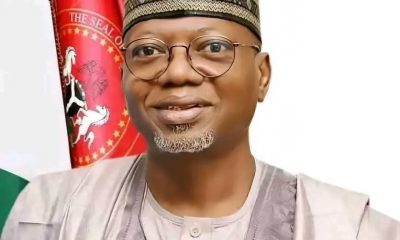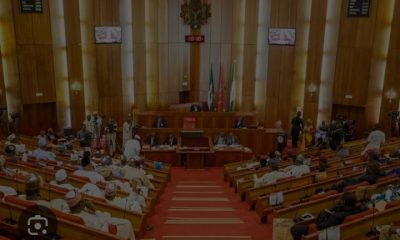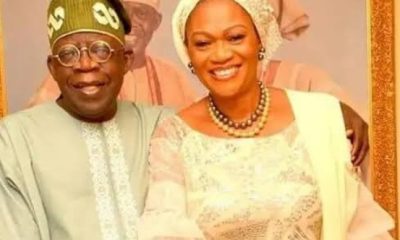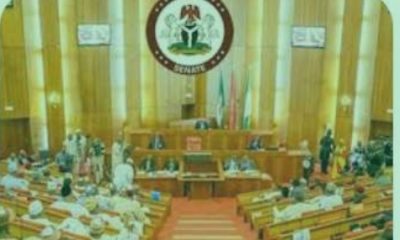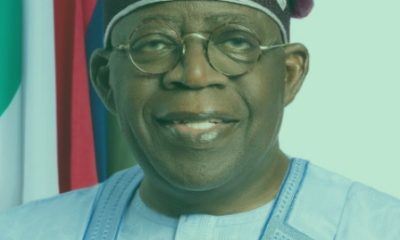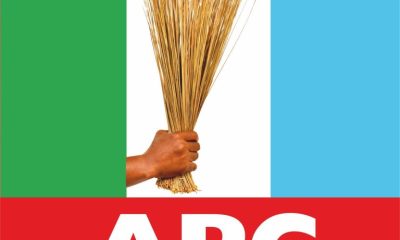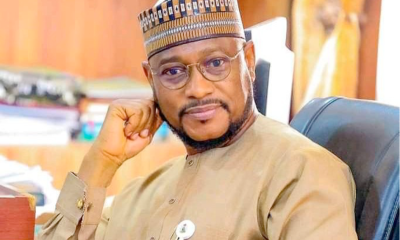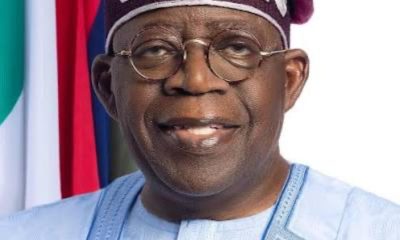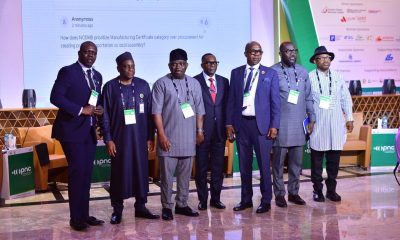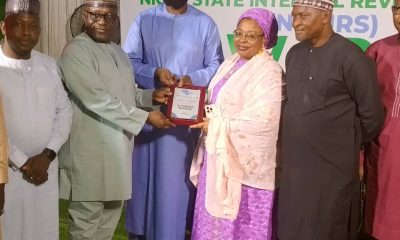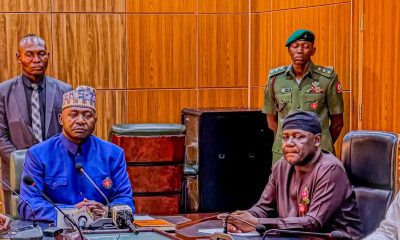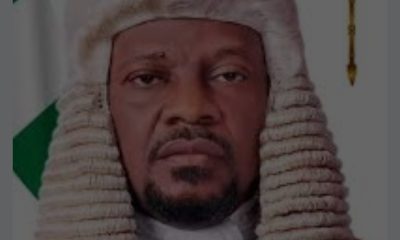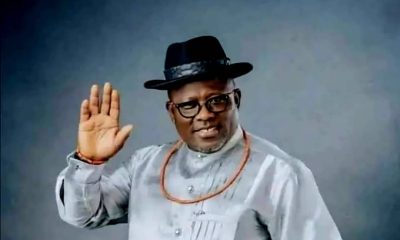Politics
Senator Lawan’s Transformative Leadership of the National Assembly
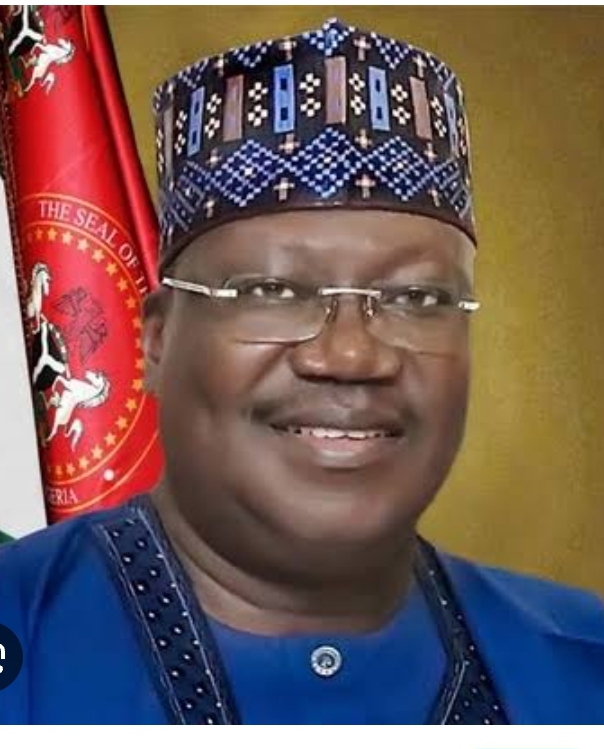
By Dr. Ezrel Tabiowo
The leadership tenure of Senator Ahmad Lawan as President of the Nigerian Senate between 2019 and 2023, heralded a remarkable era of transformation and progress for the National Assembly.
Beyond the passage of landmark legislations, it is on record that the Federal Legislature under Senator Lawan owed its successes to best legislative practices that defined his leadership. Such practices included the adoption of a comprehensive Legislative Agenda that ab initio set out priorities and goals for the Ninth National Assembly. The agenda ensured that legislative activities were aligned with national development objectives.
Prominent amongst the major achievements recorded was the restoration of the January to December budget timeline. Similarly, under the able leadership of former Senate President Ahmad Lawan, the National Assembly not only enhanced the efficiency of the budget process but also created a more transparent and accountable system.
One of the ways it did was to prioritize the early passage of the budget by consistently having it approved by December of the preceding year, providing ample time for its implementation. This timely approval prevented the previous practice of extending the budget cycle into the following year, ensuring a more predictable and orderly budgeting process.
In addition, the 9th National Assembly, adopted a participatory and transparent approach to budget review that adhered strictly to its legislative procedures. Budget Defence sessions were held with the Heads of Ministries, Departments and Agencies of Government, in a way that made it mandatory for them to defend their respective budget estimates and ensure that they align with the needs and priorities of the citizenry. Furthermore, the budget was made publicly available for scrutiny, promoting accountability and transparency.
The restoration of the January to December budget cycle under Senator Ahmad Lawan had a profound impact on the nation’s economy at the time, as it removed the uncertainty and delays associated with the extended budget cycle. It also, amongst others, ensured the timely implementation of government programmes and projects; improved economic planning and decision-making; and enhanced the credibility and transparency of the budget process.
Infrastructure Development
The Senator Lawan-led National Assembly embarked on a transformative approach to governance that resulted in significant infrastructural developments and capacity-building initiatives. Key amongst these achievements were the renovation of the chambers of the Senate and House of Representatives; and initiation and completion of critical National Assembly projects, such as the National Institute for Legislative and Democratic Studies (NILDS) Permanent Site; and the National Assembly Service Commission (NASC) complex.
National Institute for Legislative and Democratic Studies (NILDS)
NILDS is a foremost institute established to enhance the capacity of legislators, parliamentary staff, and other stakeholders in legislative governance. As Chairman of NILDS Governing Council, Senator Ahmad Lawan pushed for the construction and completion of a world-class facility for the institute that boasts of state-of-the-art classrooms, an expansive library, and office complex, enabling it to effectively train and develop future leaders in legislative and democratic processes.
Although the groundbreaking ceremony was done in 2013 under the leadership of the President of the 7th Senate, Senator David Mark, the commissioning of the NILDS Permanent site was carried out by former President Muhammadu Buhari in May, 2023, upon its completion by the leadership of Senator Ahmad Lawan.
The Governing Council of the Institute approved the establishment of a Legislative Centre for Security Analysis; and NILDS Democracy Radio 104.9FM, both of which were temporarily located at 4, Linda Chalker Street, Asokoro, Abuja. The two agencies of the Institute were commissioned on 24th May, 2023, by Senator Ahmad Lawan, and the former Speaker of the 9th House of Representatives, Rt Hon. Femi Gbajabiamila.
The Governing Council also gave its approval for the annual quiz competition, which used to be restricted to Secondary Schools in the Federal Capital Territory, to cover Secondary Schools all over the federation.
The Senator Lawan-led NILDS Governing Council consolidated on its core mandates and expanded the scope of its activities by providing capacity building workshops and technical assistance to the National Assembly, State Houses of Assembly as well as national parliaments from across Africa. These were made possible through timely approval of NILDS work plan and annual budget, as well as developmental policies approved by the Council under the Leadership of Senator Ahmad Lawan. It also gave approval to the Revised Scheme of Service and Administrative Manual of the Institute with a lot of innovations, including opportunities to promote qualified Academic Staff of the Institute to the rank of Associate Professors and Professors.
National Assembly Service Commission (NASC)
The National Assembly Service Commission is the administrative arm of the National Assembly established by the NASC Act, 2000, which was amended as the National Assembly Service Act 2014. Since its establishment, the Commisison has been operating from a rented property. First from its former offices at the Federal Secretariat, Phase III, Wuse II Abuja, to the present Office Complex at Plot 664, T.O.S. Benson Crescent, Off Okonjo Iweala Way, Utako, Abuja. This lack of suitable accommodation has impacted negatively on the performance of the statutory functions of the Commission.
Consequently, the Commission approached the Federal Capital Territory Authority (FCTA) for allocation of a parcel of land for the construction of an Office Complex. In furtherance of the request, the FCTA allocated land within the precinct of the National Assembly to the Commission in 2010. However, the land remained fallow for nine years while the NASC continued to operate from a rented property situated in a residential area that was rented with a huge sum in annual payments.
Worried that staff and property of the Commission were exposed to security risks and other adverse operational conditions, the 5th Commission in 2021 approached the Leadership of the 9th National Assembly under the Chairmanship of the President of the Senate, Senator Ahmad Lawan, for approval to commence the construction of a befitting Office Complex for the Commission on the allocated land within the precinct of the National Assembly Complex. The Leadership of the 9th National Assembly approved the construction of the NASC Office Complex and appropriated sufficient funds for the project’s take-off.
The construction of the NASC Office Complex was awarded to an indigenous construction company, STRABIC CONSTRUCTION Company Limited. The site was handed over to the Contractor on 10th August, 2021, while the Foundation Laying Ceremony was held on 20th October, 2021, by the Chairman of the 9th National Assembly, Senator Ahmad Lawan.
The befitting edifice, which is about to be occupied by the National Assembly Service Commission remains a legacy of the Senator Lawan-led 9th National Assembly that will centralized the operations of the NASC, streamline administrative processes and improve efficiency.
As Senator Lawan celebrates his 66th birthday anniversary on 12th January, 2024, I join Nigerians to express our gratitude for his selfless contributions to our nation’s development. I wish him many more years of productive service to our fatherland.
Tabiowo is the Media Adviser to Senator Ahmad Lawan and writes from Abuja.
Politics
Rivers Assembly Speaker, 16 others dump PDP for APC
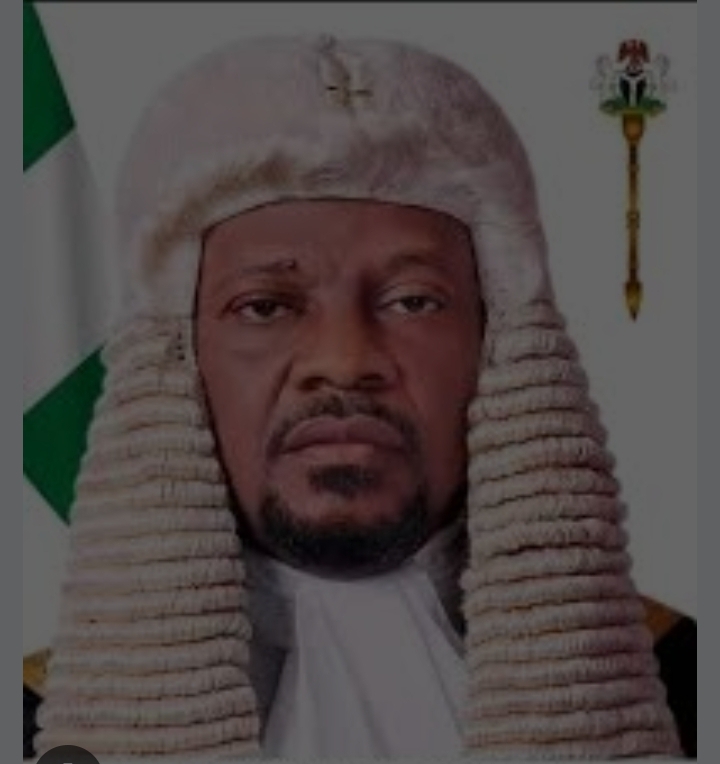
By Our Correspondent
Seventeen members of the 10th Rivers State House of Assembly, on Friday, defected from the Peoples Democratic Party (PDP) to the All Progressive Congress (APC).
The lawmakers announced their defection during plenary on Friday, December 5, 2025 at the Auditorium of the Assembly quarters currently used as the hallowed chambers.
The defected lawmakers, led by Speaker of the House, Martin Amaehwule, cited the division in the PDP at the national level as the reason for their defection, noting that the situation has made the future of the party “hazy and nebulous”.
Among the lawmakers who defected to the All Progressive Congress were; the Speaker, Martin Amaewhule, Deputy Speaker, Dumle Maol, Majority Leader, Major Jack, Deputy Majority Leader, Linda Somiari- Stewart, Chief Whip, Hon. Frankline Nwabuchi, and the Deputy Whip, Hon. Ofiks Kabang.
Others are; Hon. Peter Abbey, Smart Adoki, Igwe Aforji, Arnold Davids, Enemi George, Tekenari Granville, Christian Nwankwo, Gerald Oforji, Azeru Opara, Lolo Opuende, and Hon. Solomon Wami.
Recall that the Speaker, Martin Amaehwule had in December 2023, in the heat of the over two years political crisis in the state, led all 27 members of the Assembly loyal to the FCT Minister to the APC but later denied their defection, and returned to the PDP.
Meanwhile, the PDP which is now the minority party in the House with 9 members, has constituted their officers with Hon. Sylvanus Nwankwo emerging the Minority Leader, Hon. Barile Nwakoh was elected Deputy Minority Leader, Hon. John Dominic Iderima, Minority Whip, and Hon. Justina Emeji, Deputy Minority Whip.
The Assembly has also renewed its earlier call on the State Governor, Sir Siminalayi Fubara to forward his list of Commissioner-nominees to the House for screening and confirmation in line with the 1999 Constitution; regretting that “the State is yet to have the complement of a full cabinet.”
The Assembly also reaffirmed its earlier resolution made on the 14th of December, 2023, and adopted the auditorium at the State House of Assembly quarters as its legitimate and lawful Chamber for the conduct of legislative businesses for the life of the Tenth Assembly of the State.
Speaker of the Assembly, Martin Amaehwule in his speech lauded President Bola Tinubu for his purposeful and exceptional leadership and pledged their support to the APC and the President.
Politics
Sulu – Gambari , Ita Enang , Dambazzau , Ibas Ibok -Ete, 61 others make Tinubu’s Ambassadorial list
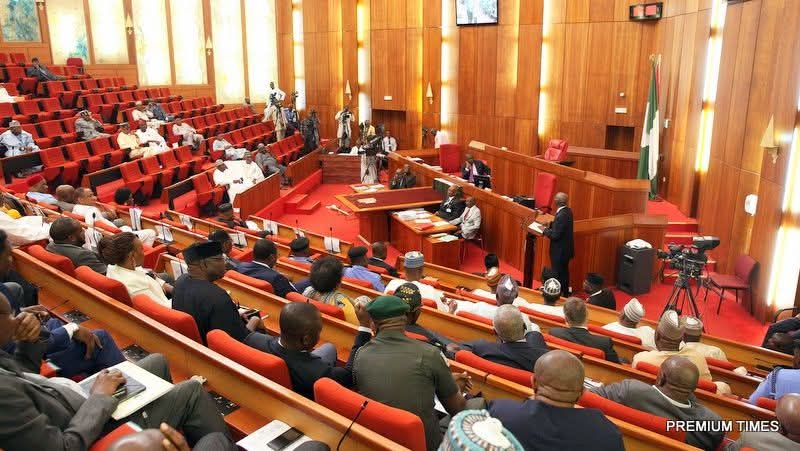
By George Mgbeleke
The Senate Thursday received requests for confirmation of nominations of 65 Ambassadorial nominees from President Bola Ahmed Tinubu.
The nominees as read from two different lists by the President of the Senate , Godswill Akpabio during plenary, fell into two categories of 34 Career Ambassadors and High Commissioners and 31 Non – Career Ambassadors and High Commissioners designate .
Notable names among the 34 Carrer Ambassadors and High Commissioners are Ambassador Sulu – Gambari Olatunji Ahmed from Kwara State , Ambassador Ahmed Mohammed Monguno from Borno State , Ambassador
Maimuna Ibrahim from Adamawa State etc .
Notable in the list of Non Career Ambassadors and High Commissioners are Senator Solomon Ita Enang from Akwa Ibom State , Vice Admiral Ibas Ibok – Ete from Cross River State , Ex Chief of Army Staff, Abdulrahaman Dambazzau from Kano etc .
President Tinubu in the requests hinged on section 171 sub section 1, 2 and 4 of the 1999 Constitution , sought for expeditious consideration of the nominees .
Accordingly, the President of the Senate, forwarded the requests to the committee on Foreign affairs for screening and report back within one week .
Recall that President Tinubu had earlier forwarded to the Senate , three ambassadorial nominees last week for appointment confirmation .
The three earlier nominees , namely
Kayode Are ( Ogun State), Aminu Dalhatu ( Jigawa) and Ayodele Oke ( Oyo State ), were screened on Wednesday by Senator Abubakar Sani Bello ( Niger North ) led committee .
Full list of the Ambassadorial nominees per state reads : ” Ambassador Ezenwa Chukwuemeka ( Abia ) Maimuna Ibrahim ( Adamawa ), Monica Ogochukwu ( Anambra) ,
Ambassador Mohammed Mahmoud Lele ( Bauchi) ,
Endoni Sindo ( Bayelsa) and Ambassador Ahmed Mohammed Minguno ( Borno ) .
Others are Jane Adams Okon Michael ( Cross River ), Clark Omeruo Alexandra ( Delta ), Chimma Geofrey Davies ( Ebonyi) ,
Oduma Yvonne Ehinose ( Edo State ), Wasa Segun Ige ( Edo State )
Ambassador Adeyemi Adebayo Emmanuel ( Ekiti ), Ambassador Onaga Ogechukwu Kingsley ( Enugu ) and
Magaji Umar ( Jigawa) .
Other nominees in the category of Career Ambassadors are
Mohammed Saidu Dahiru ( Kaduna ) ,
AbdulSalam Abus Zayat ( kano) ,
Shehu Barde ( Katsina ) , Aminu Nasiu ( Katsina ),
Abubakar Musa Musa ( Kebbi) ,Mohammed Idris ( Kebbi) ,
Bako Adamu Umar ( Kogi ) ,
Sulu Gambari Olatunji Ahmed ( Kwara ),
Ramata Mohammed ( Lagos ), Shaga John Shama ( Nasarawa )
Salau Hamza Mohammed ( Niger ) and Ibrahim Danlami ( Niger ) .
Others are
Adeola Ibrahim Mopelola ( Ogun) ,
Ruben Abimbola Samuel ( Ondo),
Akande Wahab Adekola ( Osun) ,
Adedokun Esther ( Oyo) ,
Gedagi Joseph John ( Plateau ) ,
Luther Obomode Ayokalata ( Rivers ),
Danladi Yakubu Yaku ( Taraba ) and
Bello Dogondaji ( ( Zamfara ) .
Names on the list of the 31 Non – career ambassadorial nominees are
Senator Grace Bent ( Adamawa ) , Senator Eta Enang ( Akwa – Ibom),
Nkechi Linda Okocha ( Anambra ),
Mahmud Yakubu ( Bauchi )
Philip K. Ikurusi ( Bayelsa ) ,
Paul Oga Adikwu ( Benue ),
Vice Admiral Ibok-Ette Ibas rtd ( Cross River ),
Hon. Abasi Braimah ( Edo ) and
Erelu Angela Adebayo Ekiti )
Others are Barrister Olumilua Oluwayimika Ayotunwa ( Ekiti ),
Rt. Hon. Ifeanyi Ugwuanyi ( Enugu State ) ,
Barr. Mrs. Chioma Ohakim ( Imo State ),
Lt. Gen. Abdulrahman Bello Dambazau (rtd.) ( Kano State ),
Hon. Tasiu Musa Maigari ( Katsina ) ,
Alhaji Abubakar Sanusi Aliyu ( Kogi) and
Olufemi Pedro ( Lagos State ) .
Others are
Barr. Mohammed Ubandoma Aliyu ( Nasarawa ),
Senator Jimoh Ibrahim ( Ondo), Ambassador Joseph Sola Iji ( Ondo ),
Fani-Kayode ( Osun ) , Professor O. Adewole ( Osun) , Florence Ajimobi ( Oyo ), Lola Akande ( Oyo), Professor Nora Ladi Daduut ( Plateau) , Yakubu N. Gambo ( Plateau ) , Chukwujinka Okocha ( Rivers ) , Haruna Abubakar ( Sokoto ) , Rt Hon Jerry Samuel Manwe ( Taraba ) and Adamu Garba Talba Nangree ( Yobe State ) .
Politics
Kano Guberpoll: Former LG chairmen adopt Sen Barau as APC’s sole candidate for 2027

By George Mgbeleke
Former local government chairmen in Kano State have adopted the Deputy President of the Senate, Senator Barau I. Jibrin, as the sole candidate of the All Progressives Congress (APC) for the 2027 governorship race in the state.
The former LG chairmen who served between 2019 and 2022, during the era of Dr Abdullahi Umar Ganduje as Governor of the state, adopted Senator Barau during a courtesy call to the National Assembly in Abuja on Wednesday.
A motion for the adoption of Senator Barau was moved by the former chairman of Rimin Gado Local Government Area, Barrister Dahiru Mannir Maigari, and seconded by the former chairman of the Association of Local Government of Nigeria (ALGON) in the state, Hon. Baffa Mohammed Takai.
When the former chairman of Madobi LGA, Alhaji Mohammed Yahaya, put the vote, all the former chairmen unanimously approved it through a voice vote.
Two members of the Kano State House of Assembly, Hon Zubairu Hamza Masu (Sumaila) and Hon Garba Yau Gwarmai (Tsanyawa/Ghari), witnessed the event.
A statement by the Special Adviser to the Deputy President of the Senate on Media and Publicity, Malam Ismail Mudashir, said that after the voice vote, the local government chairmen appealed to Senator Barau to declare for the governorship race as soon as possible.
Former chairman of Gwale LGA. Alhaji Khalid Ishak Diso informed the Deputy President of the Senate that the people of Kano, especially at the grassroots level, are eagerly awaiting his declaration for the race.
” Kano people are waiting for you to declare for the governorship race. We recently organised an event, where we asked you to declare. You are yet to. The people of Kano are anxiously awaiting your declaration. When are you declaring? Please answer the call to serve our people,” he said.
Also, the former Chairman of ALGON, Baffa Mohammed Takai, who led his colleagues on the courtesy call, said they adopted Senator Barau in view of his outstanding performance in parliament, adding that his contributions to Kano’s development are immense.
” We are here to throw our weight behind you. We are 100 per cent with you. Insha’Allah, you will be the next governor of Kano State, come May 29, 2027. You have the capacity to address the challenges facing our state,” he said.
Responding, the Deputy President of the Senate thanked the former local government chairmen for their support, describing them as grassroots politicians.
“It’s indeed true that Kano was second to Lagos before, in terms of development, in terms of commerce and so on. Unfortunately, Kano is now trailing behind due to a lack of good leadership. Let us not live in denial. This is a fact that we must all work together to address in the interest of our people and state.
“I wish to assure you that by the grace of God, we will take bold steps to bring Kano back to its glorious days. We will succeed by the grace of God. We will always stand by the truth and for our people,” he said.
* Tsanyawa, Ghari stakeholders endorse Barau
Meanwhile, stakeholders from Tsanyawa and Ghari LGAs of Kano State have also thrown their weight behind Senator Barau’s candidature during their visit to him on Wednesday.
A member of the Kano State House of Assembly, Hon. Garba Yau Gwarmai, representing Tsanyawa/Ghari, moved the motion, which Hon. Aminu Yakanawa seconded. A thunderous ovation from over 100 stakeholders in attendance followed the announcement of the endorsement.
Yakanawa told the Deputy President of the Senate that the people of the two local government areas are solidly behind him.
” By the grace of Allah SWT, you are the next governor of Kano State. Our people are solidly behind you, and we are committed to supporting you,” he said
Responding, Senator Barau thanked them for the support, saying the massive support from all the people of the state is a signal of what will happen in 2027.
On the security challenges facing some parts of Tsanyawa and Shanono LGAs, he said, ” We are not leaving any stone unturned in tackling this challenge. We are working underground to bring an end to it. We have taken all the necessary steps. It is not something that we go to radio stations to announce.”
-

 Business & Economy4 months ago
Business & Economy4 months agoPC-NCG Issues Disclaimer on Purported Nigerian Coast Guard National Orientation Exercise In Anambra State
-

 Entertainment1 year ago
Entertainment1 year agoJubilation galore as Parishioners of CKC Kurudu celebrate their cultural heritage ….FG should exploit our Cultural heritage to unite Nigerians-Rev Fr Dim
-

 Law & Crime6 months ago
Law & Crime6 months agoICPC pledges to collaborate with FIDA to end Sex for Marks in tertiary institutions
-

 General News1 year ago
General News1 year agoCelebration galore as UDA Successfully Elected New Exco ……I will digitalize processes that will raise UDA to greater height -Comr. Okejiri
-

 General News2 years ago
General News2 years agoReps hold public hearing on FMC Ugwuaji Awkunanaw
-

 Law & Crime5 months ago
Law & Crime5 months agoLegal practitioner raises alarm over threat to his life by CSP Muhammed Abdulkareem
-

 General News1 year ago
General News1 year agoKugbo Hill Tragedy: Trailer Crushes Car, Kills Four and Injures Several Others in Abuja
-

 Politics3 months ago
Politics3 months agoASUU-NDU protest against FG loans, unpaid salaries,Non-Implementation of agreements …..says loans is generational slavery

